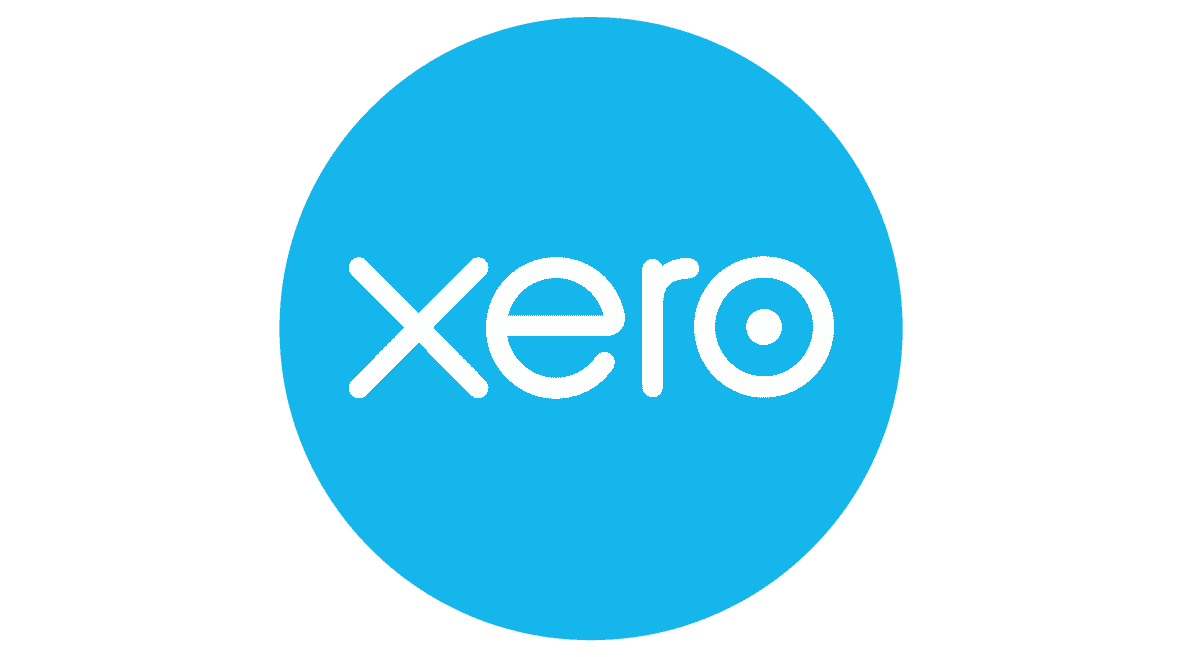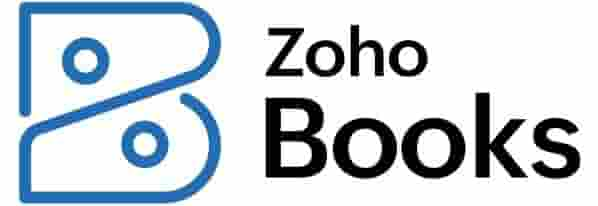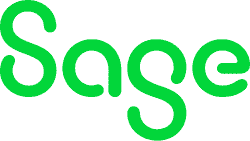Why trust NerdWallet
Best Accounting Software for Small Businesses
| Product | Best for | NerdWallet rating | Starting at | Promotion | Learn more |
|---|---|---|---|---|---|
on Xero's secure website | Simple accounting software | $20/month Additional pricing tiers (per month): $47, $80. | 90% off for 6 months. | on Xero's secure website | |
on QuickBooks Online's secure website | Working with an accountant | $35/month Additional pricing tiers (per month): $65, $99, $235. | 90% off for first three months or free 30-day trial. | on QuickBooks Online's secure website | |
on Zoho Books' secure website | Free accounting software plan | $0 Additional pricing tiers (per month): $20, $50, $70, $150, $275. | 14-day free trial of the Premium plan. | on Zoho Books' secure website | |
on FreshBooks' secure website | Freelancers | $21/month Additional pricing tiers (per month): $38, $65, custom. | 50% off for 6 months. 30-Day Money Back Guarantee. | on FreshBooks' secure website | |
on QuickBooks Enterprise's secure website | Enterprise accounting software with advanced reporting capabilities | $1,703/year Additional pricing tiers (per year): $2,210; $2,717; $5,364. Adding users or cloud access costs extra. | 30-day free trial | on QuickBooks Enterprise's secure website | |
on Striven's secure website | Industry-specific features | 4.1
/5
| $35/month Per user. Additional pricing tiers per user (per month): $70. | 7-day free trial | on Striven's secure website |
on Wave Accounting's secure website | Very small, service-based businesses | $0 Additional pricing tiers (per month): $16 | N/A | on Wave Accounting's secure website | |
on Sage 50 Accounting's secure website | Desktop accounting software | $62/month Additional pricing tiers (per month): $103.92, $177.17. | N/A | on Sage 50 Accounting's secure website |
Best Accounting Software for Small Businesses
Additional pricing tiers (per month): $47, $80.
for 6 months.
on Xero's website
Pros
- Unlimited users in all pricing plans.
- Integrates with more than 1,000 third-party apps.
- Feature set includes an excellent mobile app and suite of reports, capable invoicing features, plus automated bill and receipt capture through Hubdoc.
- Simple layout and easy to use.
Cons
- No inbound phone customer support (callbacks are available, though).
- Entry-level plan limits bills and invoices to five and 20 per month, respectively.
- Must subscribe to the highest-tier Established plan to claim expenses.
Xero
Best for Simple accounting software
Additional pricing tiers (per month): $47, $80.
for 6 months.
on Xero's website
Pros
- Unlimited users in all pricing plans.
- Integrates with more than 1,000 third-party apps.
- Feature set includes an excellent mobile app and suite of reports, capable invoicing features, plus automated bill and receipt capture through Hubdoc.
- Simple layout and easy to use.
Cons
- No inbound phone customer support (callbacks are available, though).
- Entry-level plan limits bills and invoices to five and 20 per month, respectively.
- Must subscribe to the highest-tier Established plan to claim expenses.
Additional pricing tiers (per month): $65, $99, $235.
for first three months or free 30-day trial.
on QuickBooks' website
Pros
- Easy to share information with your accountant and to find QuickBooks experts and online resources if needed.
- More than 750 app integrations.
- Robust feature set includes record-keeping, reporting, invoicing and inventory management, plus a capable mobile app.
- Chat and phone support available Monday through Saturday in all plans.
Cons
- Expensive compared with the competition.
- Frequent price increases and a tendency toward upselling.
- Limited account users with each plan.
QuickBooks Online
Best for Working with an accountant
Additional pricing tiers (per month): $65, $99, $235.
for first three months or free 30-day trial.
on QuickBooks' website
Pros
- Easy to share information with your accountant and to find QuickBooks experts and online resources if needed.
- More than 750 app integrations.
- Robust feature set includes record-keeping, reporting, invoicing and inventory management, plus a capable mobile app.
- Chat and phone support available Monday through Saturday in all plans.
Cons
- Expensive compared with the competition.
- Frequent price increases and a tendency toward upselling.
- Limited account users with each plan.
Additional pricing tiers (per month): $20, $50, $70, $150, $275.
of the Premium plan.
on Zoho Books' website
Pros
- Less expensive than some competitors; free plan available for businesses with less than $50k in annual revenue.
- Email support in free plan; phone and chat support in paid plans.
- Rich feature set includes excellent invoicing, inventory management, workflow rules and a capable mobile app.
- Add accounting widgets to your phone’s home screen; track time using your Apple Watch.
Cons
- Fewer third-party integrations and reports than some competitors.
- No plan includes more than 15 users (can add additional users for a fee).
Zoho Books
Best for Free accounting software plan
Additional pricing tiers (per month): $20, $50, $70, $150, $275.
of the Premium plan.
on Zoho Books' website
Pros
- Less expensive than some competitors; free plan available for businesses with less than $50k in annual revenue.
- Email support in free plan; phone and chat support in paid plans.
- Rich feature set includes excellent invoicing, inventory management, workflow rules and a capable mobile app.
- Add accounting widgets to your phone’s home screen; track time using your Apple Watch.
Cons
- Fewer third-party integrations and reports than some competitors.
- No plan includes more than 15 users (can add additional users for a fee).
Additional pricing tiers (per month): $38, $65, custom.
for 6 months. 30-Day Money Back Guarantee.
on FreshBooks' website
Pros
- Stay in touch with clients through the FreshBooks mobile app and get notified when invoices have been viewed or become overdue.
- Intuitive, customizable invoicing capabilities compete with those of more robust accounting solutions.
- Track time and add billable hours to invoices in all plans.
- Weekday phone support in all plans.
Cons
- Highest-tier Select plan only comes with two users (additional users add $11 per month) and lower-tier plans put limits on billable clients.
- Least expensive plan lacks double-entry accounting reports, bank reconciliation and accountant access.
FreshBooks
Best for Freelancers
Additional pricing tiers (per month): $38, $65, custom.
for 6 months. 30-Day Money Back Guarantee.
on FreshBooks' website
Pros
- Stay in touch with clients through the FreshBooks mobile app and get notified when invoices have been viewed or become overdue.
- Intuitive, customizable invoicing capabilities compete with those of more robust accounting solutions.
- Track time and add billable hours to invoices in all plans.
- Weekday phone support in all plans.
Cons
- Highest-tier Select plan only comes with two users (additional users add $11 per month) and lower-tier plans put limits on billable clients.
- Least expensive plan lacks double-entry accounting reports, bank reconciliation and accountant access.
Additional pricing tiers (per year): $2,210; $2,717; $5,364. Adding users or cloud access costs extra.
on QuickBooks' website
Pros
- Strong feature set includes thorough record-keeping, invoicing and advanced inventory management and pricing rules.
- More than 200 reports, including industry-specific options for various industries.
- 24/7 phone and chat support.
Cons
- Outdated user interface.
- Limited direct, third-party integrations for payroll software and popular point-of-sale systems.
- Annual subscriptions are expensive; each additional user license costs extra.
QuickBooks Enterprise
Best for Enterprise accounting software with advanced reporting capabilities
Additional pricing tiers (per year): $2,210; $2,717; $5,364. Adding users or cloud access costs extra.
on QuickBooks' website
Pros
- Strong feature set includes thorough record-keeping, invoicing and advanced inventory management and pricing rules.
- More than 200 reports, including industry-specific options for various industries.
- 24/7 phone and chat support.
Cons
- Outdated user interface.
- Limited direct, third-party integrations for payroll software and popular point-of-sale systems.
- Annual subscriptions are expensive; each additional user license costs extra.
Per user. Additional pricing tiers per user (per month): $70.
on Striven's website
Pros
- Offers industry-specific features for consulting businesses, nonprofits, manufacturing companies, professional services and more.
- Tools to ensure tax compliance.
- Other features include inventory tracking, reporting, invoicing, project management tools and the ability to categorize transactions using classes.
- Customer support available by phone and live chat.
Cons
- Monthly costs could add up quickly if you require multiple users.
- No mobile app.
- Limited third-party integrations available; no payroll integrations.
Striven
Best for Industry-specific features
Per user. Additional pricing tiers per user (per month): $70.
on Striven's website
Pros
- Offers industry-specific features for consulting businesses, nonprofits, manufacturing companies, professional services and more.
- Tools to ensure tax compliance.
- Other features include inventory tracking, reporting, invoicing, project management tools and the ability to categorize transactions using classes.
- Customer support available by phone and live chat.
Cons
- Monthly costs could add up quickly if you require multiple users.
- No mobile app.
- Limited third-party integrations available; no payroll integrations.
Pros
- Free plan available.
- Intuitive, customizable invoicing capabilities compete with those of more robust accounting solutions.
Cons
- Lacks features that quickly growing companies need, like audit trails.
- Must subscribe to Wave’s Pro plan or other paid services (payroll, payments, advisor, etc.) to receive customer support from a human.
- No mileage tracking feature and must use Zapier for third-party integrations.
Wave Accounting
Best for Very small, service-based businesses
Additional pricing tiers (per month): $16
on Wave's website
Pros
- Free plan available.
- Intuitive, customizable invoicing capabilities compete with those of more robust accounting solutions.
Cons
- Lacks features that quickly growing companies need, like audit trails.
- Must subscribe to Wave’s Pro plan or other paid services (payroll, payments, advisor, etc.) to receive customer support from a human.
- No mileage tracking feature and must use Zapier for third-party integrations.
Additional pricing tiers (per month): $103.92, $177.17.
on Sage's website
Pros
- Advanced inventory tracking and job costing features.
- Industry-specific features for construction, retail and professional services businesses.
- Phone and chat support, plus a dedicated account representative in all plans.
Cons
- Lowest-tier plan doesn’t include audit trails.
Sage 50 Accounting
Best for Desktop accounting software
Additional pricing tiers (per month): $103.92, $177.17.
on Sage's website
Pros
- Advanced inventory tracking and job costing features.
- Industry-specific features for construction, retail and professional services businesses.
- Phone and chat support, plus a dedicated account representative in all plans.
Cons
- Lowest-tier plan doesn’t include audit trails.
More about our top accounting software picks
What is accounting software?
- Entering and organizing financial transactions.
- Recording income and expenses.
- Reconciling accounts.
- Generating
financial statements - Keeping track of how much money you’re owed and vice versa.
Learn more about how accounting software works
Key accounting software features to consider
How much does accounting software cost?




How to choose accounting software
- Accessibility: Cloud-based software enables access through any device with an internet connection. This generally allows for easier collaboration with accountants and seamless integration with other business software. Desktop-based software, however, can only be accessed from a single computer.
- Scalability: Take a look at products’ plan offerings, including how many employees and users the software can support, to make sure you can upgrade to a more robust version of the software as your business grows. If you anticipate rapid or high growth, consider
accounting software for medium-sized businesses - Your budget: Determine how much your business can afford to spend monthly on accounting software in conjunction with other recurring costs, like utilities, rent and additional software subscriptions for a POS system or payroll, for example. If you’re a solopreneur and want to keep costs down, check out our list of
best accounting software for freelancers and the self-employed - Ease of use: Accounting software that isn’t intuitive and user-friendly can take up an unnecessary amount of your time or discourage you from using it as often as you should to keep your finances in order. Test out free trials of accounting software, request a demo and watch tutorial videos to get a feel for navigating the software.
- Integrations: Think about the other types of software you already use or plan to use, and check to see if direct integrations are available between those products and the accounting software you’re considering. If not, you may need to pay for an indirect integration or manually transfer data from one product to another.
- Customer support: Think about what time of the day you’re most likely to reach out for assistance and how you’d like to communicate with customer service representatives. Free accounting software options typically offer less robust customer support solutions than paid products do.
- Sharing with your accountant: If you’re working with an outside accountant, take note of how easy (or not) a product makes it for you to share your financial details and reports with your accountant. Many popular accounting software products allow you to easily share access, but some require upgrades to costlier plans for this access and some products only enable you to export data to be sent to your accountant.
💬 Tips for setting up your accounting software

Compare more accounting software products
How we choose the best accounting software for small business










